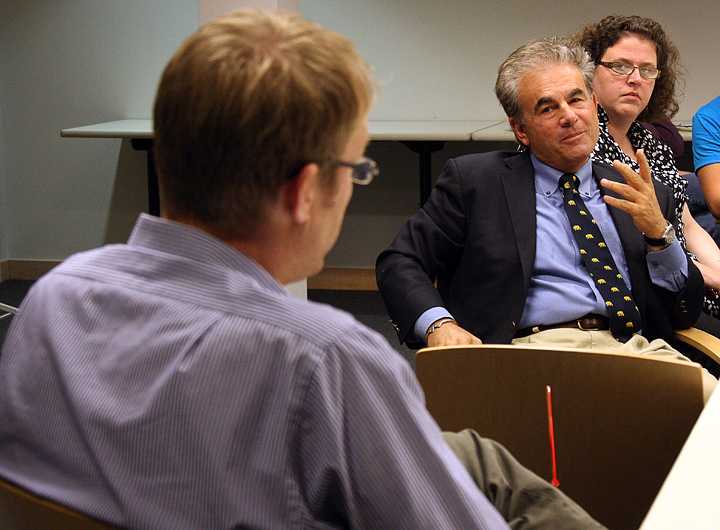Richard Scheffler, a specialist in health economics, international health economics and the economics of medicine and managed care, who holds the endowed chair at the University of California Berkeley in Healthcare Markets & Consumer Welfare, recently sat down with Nate Palm-Powell and Dilan Ustek of the S&B to answer some questions.

Could you tell us about your new book, “Is there a Doctor in the House?”
We seem in the United States to train doctors to be specialists and super specialists. Two thirds of our doctors become specialists and one third become general practitioners. We are training too many specialists. One of the recommendations in my book is to reverse this process. The other striking conclusion is that much more work can be done by nurses and nurse practitioners.
Are you writing any new books besides the one just published? And what may readers expect from it?
I am co-authoring a book with the chair of the Psychology department at Berkley. We’re trying to study the issue of Attention Deficit Disorder and the use of medication. People get treated with meds like Ritalin, and we’re trying to figure out how it works and how cost effective it is. The book also looks at the role of parents, the health insurance companies, the schools and how they relate to the industry. It is the number one diagnosed mental health issue in children, so economically it’s very relevant.
How can the system of financing mental health services be improved?
I think it’s going to be improved because of the new legislation because it has something called parity. We treat mental health the same as physical health and we don’t give as much financing to it. The reform legislation says that mental health and physical health should be treated on equal footing. For example, if you have a co-pay this year where you have to pay 20 percent for a physical treatment but 50 percent for a mental health treatment, this system would cut that off and make them equal.
What do you think some of the effects of the recently passed health care reform bill may be?
The reforms are mostly, for the first few years, focused on providing health insurance to those who don’t have any. We’re hoping to cover, under this bill, 30-35 million people of the 45-50 million people who don’t have health insurance. The people who are uninsured are mostly minority groups: Hispanics, blacks and other minority groups who fall into the category of ‘near poor’ that is they aren’t poor enough to be covered by the Medicaid program but not well off enough to afford insurance. They are also people who work for very small firms. The last group is the undocumented. These are people who are afraid to show up for health care until it’s too late. This legislation will work immediately to help all three of these groups.
Why do you think it has taken so long to pass this piece of legislation?
In this country there’s the mentality that people are simply trying to outrun each other when it comes to healthcare. This reform bill is the most important piece of legislation passed since Medicare in 1965. Solidarity is the idea that we care about each other, and is a very un-American principle. This bill says that instead of solidarity, that you have a personal responsibility, “you are mandated to buy yourself health insurance.” This legislation is encouraging people to go out and buy health insurance in the private market.
What will this bill mean to students at Grinnell?
The best part of this bill will be that you can stay on your parent’s insurance until the age of 26. The cut off age was formerly 22.
Where is the money going to come from for this new bill?
First there’s a huge increase in the Medicare tax. Previously Medicare only taxed wages. If you were a very rich person who didn’t work, you didn’t pay. Now you have to pay on all incomes. There’s a windfall tax on the pharmaceutical industry, insurance industry and others, like tanning salons.


















































